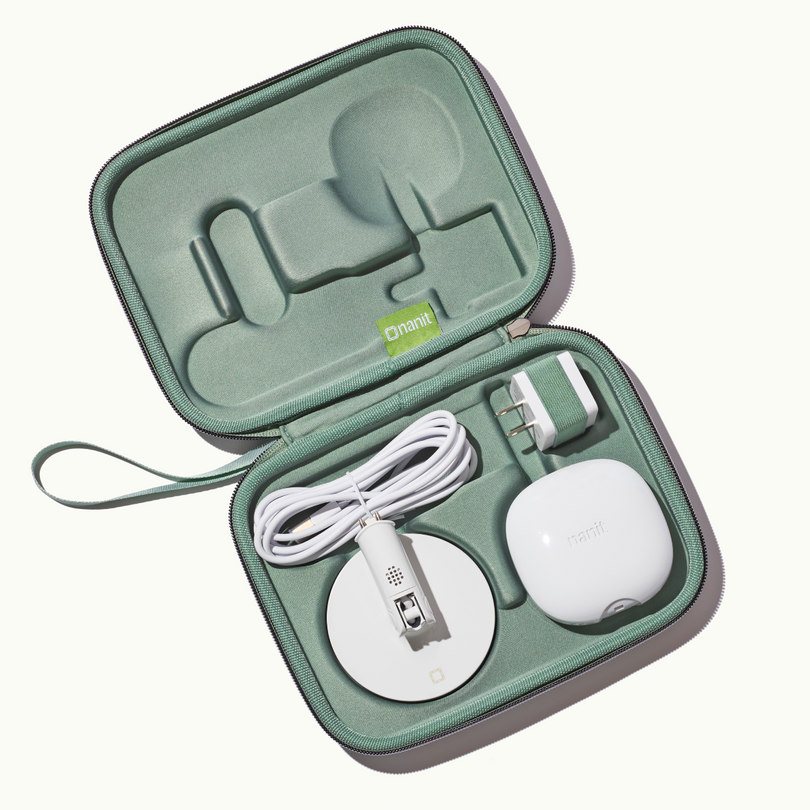5 Month Old Nap Schedule:
Nap times begin to fluctuate between baby’s 4 and 6-month birthday, but will likely range from 2 to 4 hours of total sleep each day. These napping hours are typically broken up into 3 different naps between the ages of 4-5 months, and 2 more extended naps by the time they reach their 6-month birthday. Now is also the time to begin sleep training, if you want. Sleep training consists of putting baby in their crib when they’re drowsy, but not asleep, to give them the opportunity to fall asleep unassisted. If they’re used to falling asleep with you, you can expect some tears. You can come back a bit later to confirm that they’ve fallen asleep. While it can be difficult for both of you to transition baby into sleeping in their own space, it is important for them to become comfortable with this incremental autonomy, and realize that they won’t always be right next to you. Many naps may still be occurring in the car or stroller, but it’s important to begin eliminating as much motion as possible from naptime, and have them sleep in their crib for almost all naps. A baby’s crib should be like their safe haven where they can move freely and sleep soundly.
5 Month Old Feeding Schedule:
A consistent sleep/eat/wake schedule is crucial in helping your baby learn when it is time for food, rest, and activity. Nighttime feedings should also be fading away as baby becomes more comfortable sleeping 11-12 hours throughout the night without feedings. Because of this, it’s important for your baby to receive ample nutrients during the day, which consists of around 24 ounces total, with 5-8 ounces each feeding. If you’re breastfeeding exclusively, you can make sure baby is getting enough to eat by feeding for 15-20 minutes, five times a day. Another good indicator of how much milk baby is getting each feeding is how much milk you produce when you pump. It is recommended by The American Academy of Pediatrics (AAP) that babies be exclusively breastfed, or formula fed, for the first 4-6 months of life, but they recognize that babies are able to accept solids between 4-6 months. Ultimately, it is up you and your baby when you begin solids, and can decide if you want to begin solids around 6 months of age, or even try them out a bit earlier.
How Long Should A 5 Month Old Sleep?
In regards to your baby’s sleep schedule, it’s important for everyone in their life to be on the same page, and expect your baby to sleep for short periods throughout the day and extended periods throughout the night. This shifting sleep schedule shows that baby now has less confusion between daytime and nighttime. With naps and nighttime sleep combined, your baby will now be likely sleeping a total of 14 to 16 hours a day, and is ready for a sleep schedule and bedtime routine to be introduced – although it’s never a bad time to start a bedtime routine with your baby! As you begin to create a bedtime routine, test out various calming activities to see what works for the two of you – it’s important that you also feel relaxed during this routine. Make sure you create plenty of space for this bedtime routine, helping baby to wind down before you lay them in their crib. You can also remove pacifiers from their crib so they’ll be encouraged to soothe themselves if they wake up.
The 5 Month Schedule
|
Wake and Milk Feed 6:30 AM |
Depending on the last time your little one was fed, this first feed of the day might be a bigger than usual. Make sure to take note if your baby is not super hungry — you might need to cut back on feeding in the middle of the night. If you're breastfeeding, you'll be very full in the morning, particularly after a long stretch of rest and not feeding. Consider pumping off extra milk to store for later, after you've fed your baby. |
|
Nap time 8:30 AM - 9:30 AM |
It's time a for a break, and this nap is a perfect time to take one. Grab yourself a coffee, take a shower, Netflix perhaps? Indulge in some you time. |
|
Milk Feed 9:30 AM |
Time for food! Your baby baby will be hungry when they wake up from their nap. (They may not wake up for another half an hour.) |
|
Nap time 11:30 AM - 12:30 PM |
It's fine to let your little one nap for another 30 minutes if they don't wake up on their own. |
|
Milk Feed 12:30 PM |
It's time for another feed —this may not happen for another half an hour, when baby awakes. |
|
Nap time 2:30 PM - 3:30 PM |
Babies are like cats with their naps, sometimes only needing 15-40 minutes at this time (or a little longer if they want)... let the little one sleep for another 30 minutes if they don't wake up on their own at this time. |
|
Milk Feed 3:30 PM |
It's time for post naptime milk! |
|
Bathtime 5:45 PM |
Timing for a bath is up to you. If everyone's having fun and feeling good, great! But if you and baby are stressed out, try bath time at another point in the day or every other day if that feels right. |
|
Last Milk Feed 6:15 PM |
Break up the last feed and bedtime with a song or story, to avoid having the little one fall asleep at the breast or bottle. |
|
Bedtime 6:30 PM |
Time for bed. Sweet Dreams! |














